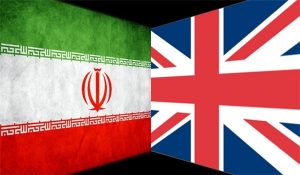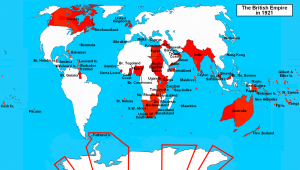The British Labour Party Uses Humanitarian Assistance as a Means of International Diplomacy In the Twenty-First Century
Forty years on, in the beginning of the twenty-first century, British aid to ex-colonies amounts to nearly £1 billion, with the largest sum going to communication, education and agricultural development. A wide range of tasks was assisted, such as road building, land settlement, airport construction, and so forth. This represents an investment in political and economic goodwill, but of course, is applied in a context where more significant ties will operate (than by were economic calculation) due to the way in which the political elite had managed the ending of empire in the decolonisation process. There is, amongst all the Commonwealth members one strong, continuing cultural bond centering on Britain- the use of the English language. In the 1990s about six hundred million people spoke English as their primary language white about billion could use and understand it to some degree. English has become a universal language, in commerce, diplomacy, science, aviation, sport, and scholarship. Also because of the United States’ rise as a major power too, there has been an even greater spread of the English language through the press, media, and the cinema.
The Commonwealth Development Corporation and the British equivalent
for the Commonwealth of the Marshall Plan, the Colombo Plan, was mainly based upon shrewd economic considerations being targeted at retaining Britain’s trading and financial role in the ex-colonies, (and as time has progressed in the undeveloped nations of the world as a whole) and consequently safeguarding British economic and political positions, as a world power.
The Colombo Plan, which, as has been said was based upon shrewd economic considerations, and the gradual conversion of the Empire into the Commonwealth was the Labour Government of 1945-51’s major political adjustment and achievement which has carried itself on, well into the twenty-first century. This is, now, in the twenty-first century, called humanitarian aid. This was due to the fact that, although being a socialist and anti-colonial party, nevertheless the Labour Government strongly believed that Britain’s position as a world power must be maintained, and therefore they also managed to harmonise their socialism with the Conservatives who were traditionally and conspicuously the strong supporter of the British Empire and its expansion. This was because Labour’s approach to maintaining and protecting of British interests in the period of being in office, 1945-51, had be shared by those Conservatives who were well liked and respected by their own party and who were also close to Churchill. Before the end of World War Two, Stanley, the Colonial Secretary, a close friend of Churchill who had even been spoken of as a future Chancellor, and Andrew Cohen, the Governor of Uganda, had been speaking positively of the policy that Labour eventually adopted during 1945-51 to protect British interests, which was virtually completed by Macmillan when he left office in 1963.



